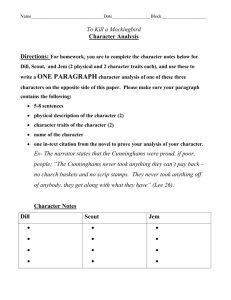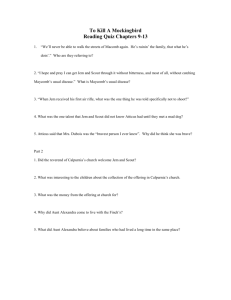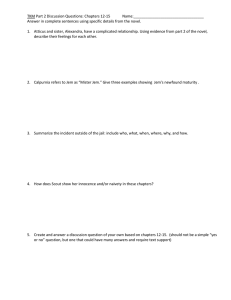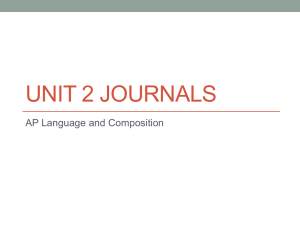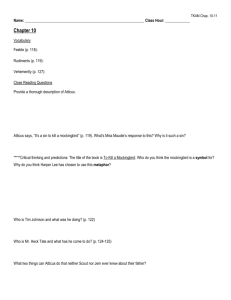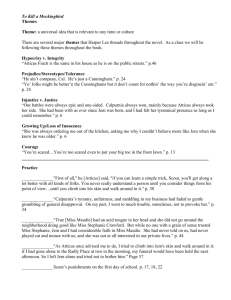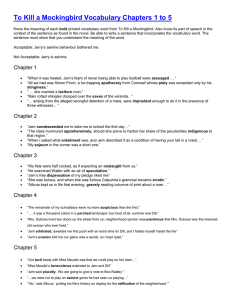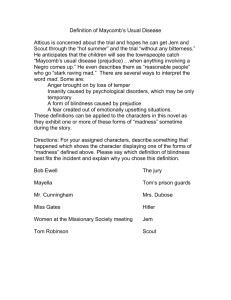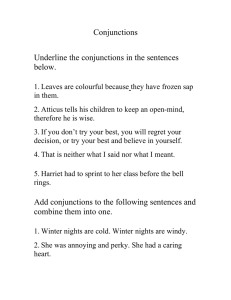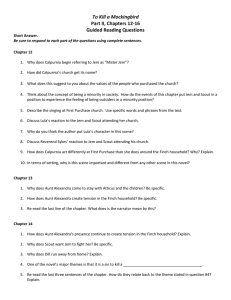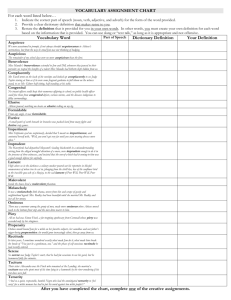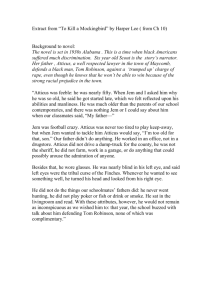Characterization in Literature: Types & Analysis
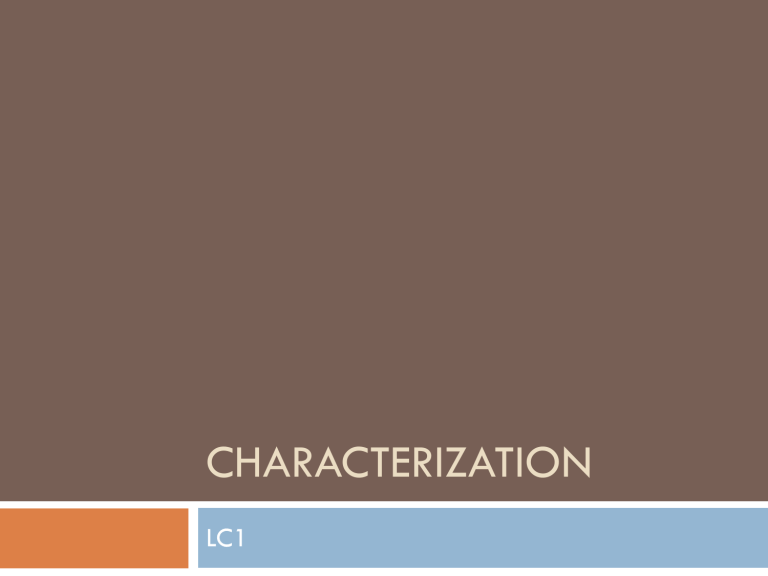
CHARACTERIZATION
LC1
How a Character is Revealed
Directly: the narrator or author explains explicitly or directly
Indirectly:
Thoughts or feelings
Interactions with other characters
His or her actions
What other characters say about this person
Examples:
Directly:
“Jem was twelve. He was difficult to live with, inconsistent, moody” (153).
Why/how is this a direct characterization about Jem?
Indirectly:
As Scount, Jem and Dill deliberate what to do with their time, Scout rolls in a tire to play. In deciding who will go first, “Jem arbitrated, awarded me first push with an extra time for Dill…” (49).
Why/how is this indirect characterization about Jem?
Types of Character
FLAT
Two-dimensional in that they are relatively uncomplicated
ROUND
Complex with depth and nuance
Who can you predict or infer already is a flat character? A round character? How so?
Types of Character
STATIC
Do not change throughout the course of a work
DYNAMIC
Undergo development, sometimes sufficiently to surprise the reader.
In a novel or story, the protagonist USUALLY is what type of character?
Writer’s Warm-up (next class):
Writing
Tips/Reminders:
Include a T.A.G.
Novels are underlined
Include a TS
Incorporate a quote and parenthetical citation
CM> 2 sentences
Make/end with a connection to self, text, or world
Write one body paragraph describing
Scout: How is she a flat vs. round character? Do you predict she is a static vs. round character? How and why?
Write another body paragraph summarizing Atticus. How is he a flat vs. round character? Do you predict he is a static vs. round character? How and why?
